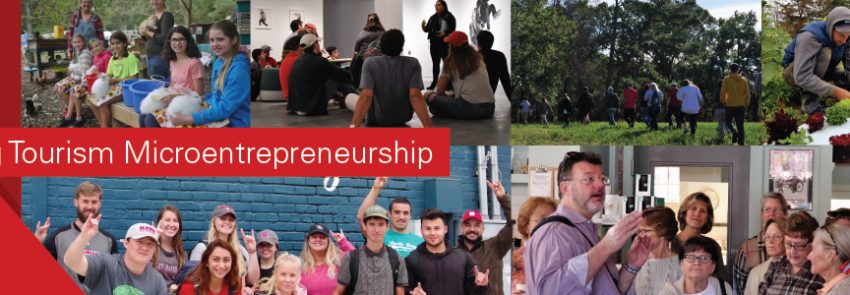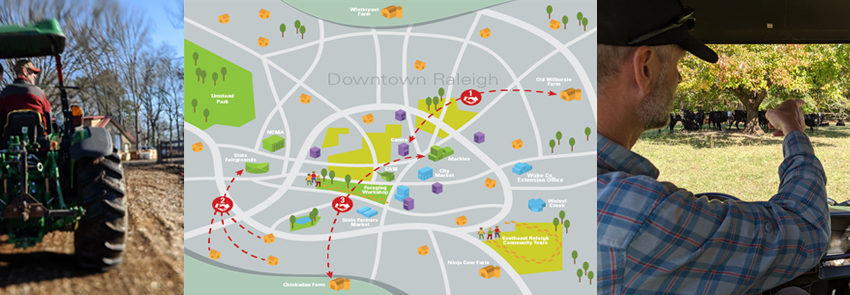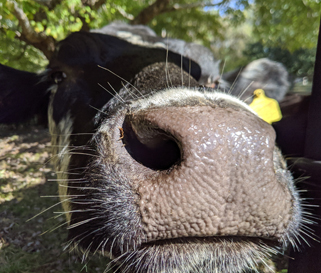The goal of this project was to develop a new technology-driven immersive online course on tourism microentrepreneurship. DELTA collaborated with Dr. Duarte Morais and Erin Adair from the College of Natural Resources to develop high-quality and immersive virtual field trips to allow students to experience unscripted and immersive experiences provided by a variety of charismatic local microentrepreneurs. This course includes a capstone project in which students are introduced to the concept of a Destination Audit at the beginning of the course and will learn about the various components as they move through the course modules.
Instructional Challenges
- Tourism microentrepreneurship concepts are often difficult for students to grasp and understand, student needed a real life story to learn the concepts
- Effective tourism professionals must have microentrepreneurial skills and experience, and they must know how to fuel tourism microentrepreneurship in ways that make destinations more competitive, equitable and sustainable.
- Student will learn how to get family involved in the small and make them passionate become the owner of small business
- The capstone project needed to be restructured and Students needed an innovative way to submit the project for grading
- Facilitate active learning and create an engaging and interactive learning experience, integration with the existing microentrepreneur community in our area/state
Highlights/Solutions
- Immersive field trips and immersive experiences
- In this project, two local small business owners (a cow farmer and artist) were targeted as case studies. Solutions included:
- Create the Ninja Cow Farm tour using 360 and traditional videos
- Create the Art Fair tour and behind-the-scenes work using 360 and traditional video
- Use StoryMap to create a personal story of a farmer and an artist that students can view and experience
- Create an assignment in Moodle to reflect and discuss this experience
- In this project, two local small business owners (a cow farmer and artist) were targeted as case studies. Solutions included:
- Interview Videos
- Traditional videos were used to interview the farm owner and the artist and captured their passion and aspirations as local business owners. The students learn how to be successful tourism microentrepreneurs and how they can train others to be successful. They also learn how tourism microentrepreneurs can partner with private sector companies and public organizations, along with how tourism microentrepreneurs can make destinations more competitive and equitable.
- Illustrated Media
- Create a local map/network for microentrepreneurship in the city of Raleigh
- Course Design and Student Engagement
- Moodle tools were used for entire course design, development and student engagement.
- Other tools for collaboration
- Google Jamboard was used for student collaboration and idea sharing
Evaluation Findings
- A majority of students were satisfied with the course and held positive perceptions in terms of course elements (lecture videos, microentrepreneur videos, permatourism map, virtual tours, capstone assignment) being helpful to them in improving their knowledge of the subject matter.
- Students also viewed course activities as engaging, helping their preparation, and providing a solid foundation for assessments. Further, they held positive perceptions of exam and assignments, finding them reflective of content, creating learning opportunities, and providing a solid foundation to be successful in the future.
- Students evidenced moderately high levels of microentrepreneurship self-efficacy and an intermediate level of knowledge of course learning objectives at the end of the course.
Related Links
StoryMaps
360 and Traditional Videos
- Feeding livestock at Ninja Cow Farm 360VR
- Virtual visit to Ninja Cow farm store 360VR
- Virtual ArtWalk with Annelies
- ArtWalk with Annelies: Conduit for Change
Illustrated Media:
For more information about DELTA services, please contact LearnTech.


